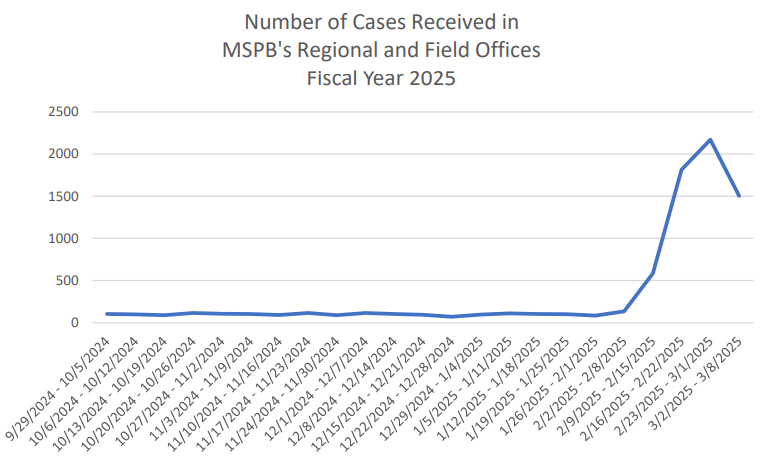- Sen. Chuck Grassley (R-Iowa) wants a progress report on how the Defense Department is improving oversight of its purchase cards. The senator is looking for answers from the Pentagon by early May about how it is implementing auditor recommendations to increase oversight of employees using the government purchase card. Grassley said a recent inspector general report, finding employees classified purchases for COVID-related emergency services that turned out not to be COVID-related, shows a lack of internal controls. The purchases ranged from plumbing repairs to NordicTrack ski machines to lab chemicals and supplies. Grassley detailed five questions, including asking for all the processes and procedures DoD has in place to ensure the purchases are what they are purported to be.
(Sen. Grassley presses DoD on purchase card oversight – Sen. Chuck Grassley (R-Iowa))
- Agencies considering moving offices now have to take into account several social, economic and environmental factors before making a decision. An updated Federal Management Regulation from the General Services Administration told agencies to keep in mind factors like proximity to transportation corridors and promoting environmentally sustainable development. These requirements, for both leased and owned buildings, are in addition to agency mandates around mission, physical security and cost considerations. GSA issued the final rule as part of its requirements under the Biden administration’s federal sustainability plan. GSA had not updated the regulation since 2005. The new rule goes into effect on May 22.
- Agencies have more answers for handling hiring changes under the Fair Chance Act. To start, agencies have to make job applicants aware of the requirements in the Act, the Office of Personnel Management (OPM) said. That law bans agencies from asking applicants about their criminal history until after giving them a conditional job offer. OPM said agencies should also make sure their procedures for implementing the Fair Chance Act are well-documented. That can help, for example, if an applicant questions the timing of a criminal history check. OPM said agencies who have clear documentation on hand are better able to mitigate complaints or adverse actions.
(Guidance on restrictions on preemployment criminal history inquiries – Office of Personnel Management )
- The Department of Veterans Affairs is seeing new pay incentives drive up employee retention. VA Secretary Denis McDonough said “quit rates” for its workforce are at “historic lows.” He said data shows its use of a new critical skills incentive is contributing to higher retention. VA got that authority under the toxic-exposure PACT Act and can offer bonuses to employees with skills in short supply at the department. McDonough said the VA is also recruiting more nurses after losing them to big pandemic hiring bonuses offered by private health care providers. “We have some evidence to suggest that some of those nurses are returning,” McDonough said.
(VA sees its special pay authorities driving up workforce retention – Federal News Network)
- The Coast Guard is planning to eliminate some units and realign some others because of “unprecedented” staffing shortfalls. The agency said it intends to shut down almost two dozen small-boat stations across the country. Those stations will stay in the Coast Guard inventory, but only be used during special circumstances, because the service does not have enough crew members to staff them full time. The service is accepting public comments on the plan through May 24.
(Operational Adjustments Resulting from Workforce Shortages – U.S. Coast Guard (via Federal Register))
- The State Department can take years to get a new embassy up and running. But the top Republican on the Senate Foreign Relations Committee said that is not fast enough when diplomats need to hit the ground running. So Committee Ranking Member Jim Risch (R-Idaho) has introduced the Embassy in a Box Act. The bill would require the department to develop a way to fast-track the planning and construction of new missions overseas, and would require the State Department to issue guidance on the expedited construction methods.
(Risch introduces Embassy in a Box Act – Sen. Jim Risch (R-Idaho))
- Specialists in acquisition, HR and budgeting will have a new website to get information on the federal workforce. The so-called “HR marketplace” compiles personnel data, along with available solutions to governmentwide human-capital challenges. The Office of Personnel Management launched the new website earlier this week, with the idea of creating a “one-stop shop” for anyone looking to better understand workforce issues. One of the end goals is to help agencies more effectively invest in HR technology.
(HR marketplace website – Office of Personnel Management)
- The Air Force is moving forward with what might end up being DoD’s biggest example of teaming manned and unmanned systems together. That is an idea Defense officials started pressing for, in a big way, a decade ago. Officials said they have executed contract options that will give existing vendors the go-ahead to start building real-world examples of the unmanned systems that would fly alongside human pilots in the Air Force’s Collaborative Combat Aircraft program. Eventually, the Air Force wants to build about 1,000 of those systems, with a final production decision expected in 2026.
(Air Force exercises two Collaborative Combat Aircraft option awards – U.S. Air Force)
The post Senator underwhelmed by DoD oversight of government purchase card first appeared on Federal News Network.



